45 can food labels be misleading
17 Misleading Food Labels Designed To Influence What You Buy This article discusses seventeen of the most common misleading food labels used by the marketing departments of food manufacturers. These slogans are designed with the sole purpose of influencing your purchasing decisions by instilling a false sense of confidence that the product is either: a healthy choice Why Food Labels Are So Misleading - Next Avenue Eating packaged foods labeled as high in fiber can negatively impact our health, too. Researchers conducting a 2013 study examining the cardio-protective effects of fiber in the diet cautioned that...
What misleading food labels such as 'less processed' and 'multigrain ... Food label translator: What 'less processed' and 'multigrain' actually mean. Perspective by Tamar Haspel. Columnist, Food. February 24, 2022 at 8:00 a.m. EST (Ross Murray for The ...

Can food labels be misleading
Why Misleading Food Labels Are Everywhere - Chris Kresser For example, chicken breasts can have added chicken broth (with unknown contents) that comprises up to 15 percent of the total package weight! Other times, food labels can be downright misleading. Certain marketing phrases added to packaging try to convince us that foods are healthier than they might actually be. Don't fall for them! "Gluten-Free" Food Labels Can Be Misleading - Smart Lifebites - 11 percent of Americans find food labels to be completely untrustworthy. - 82 percent of Americans have felt tricked by nutrition labels. - 43 percent of Americans think brands are misleading consumers as a way to sell products. - 44 percent of Americans are skeptical of the health claims purported on food labels. - More than two ... Food labels often mislead consumers | Oklahoma State University Food labels often mislead consumers. Thursday, August 1, 2019. If you take a stroll down any aisle in the grocery store, consumers will see all kinds of food labels touting products as being healthy choices. Cholesterol-free produce, gluten-free water, natural soda, 100 percent whole-grain cookies and non-GMO carrots are just a few examples of ...
Can food labels be misleading. Can Food Labels Be Misleading? | HuffPost Life Omega-3 Fatty Acids. Studies from these healthy fats show that they may reduce the risk of heart disease, stoke, cancer, arthritis and other autoimmune diseases. Some studies suggest you need about 3.5 grams daily. The best choices are one quarter cup walnuts, 3 oz salmon or 1 ½ tsp of flaxseed oil. Misleading Labels? Learn which labels you can trust with AGW. The problem is these food label claims are often pretty confusing—and some are even purposefully misleading. While some food label terms and claims are legally defined—and can only be used if specific rules are met—most of the food label claims you'll see are completely unregulated, and open to abuse. The 13 Most Misleading Food Label Claims The 13 Most Misleading Food Label Claims By Naked Food Magazine • 7 years ago • Autism, Naked Food, Naked Diet The goal of food industry giants is to create and maintain the consumer completely confused. Words such as natural, non-gmo, trans-fat free, or kosher don't mean what we believe. 1. "Non-GMO" does not mean organic. Surprising ways food labels are misleading, according to experts Some of the worst foods consumed have no label at all because they're eaten outside the home. Here's a look at some of the important facts that don't appear on labels. 'Fake fiber' Most adults only eat about half of the minimum recommended daily allowance for dietary fiber, which is set at 28 grams a day for a 2,000 calorie diet.
Why Lawsuits Over 'Misleading' Food Labels Are Surging - The New York Times The misleading labels, the plaintiffs say, seek to profit off consumers' growing interest in clean eating, animal welfare and environmentally friendly agriculture — but without making meaningful... How to Read Food Labels Without Being Tricked - Healthline These include cane sugar, invert sugar, corn sweetener, dextran, molasses, malt syrup, maltose, and evaporated cane juice. The Bottom Line The best way to avoid being misled by product labels is to... Whole grains or no grains? Food labels can be misleading Sep 30, 2020 · Food labels can be misleading September 30, 2020 By Katherine D. McManus, MS, RD, LDN, Contributor Food labels contain a wealth of information: calories, serving size, and the amounts of fat, sugar, vitamins, and fiber contained in a food, among other things. But do consumers know how to effectively use this information? 5 Misleading Food Label Claims - Consumer Reports This guide will help you navigate five common health-claim minefields in the grocery aisle. 1. Multigrain. These foods have more than one type of grain, but those grains could be refined, meaning ...
Nutrition Facts Labels Can Be Misleading - NUTRIPOL Nutrition Facts Labels Can Be Misleading. In the era of health crazes and anti-obesity measures, the Nutrition Facts label is often one of the first items a potential shopper looks at when purchasing groceries. ... This granted the Food & Drug Administration (FDA) authority to mandate the nutrition facts label on most foods, as well as to ... Explaining the Labels: Misleading Labels - Center for Food Safety Although the FDA has definitions for terms like reduced sugar, no added sugar, and sugar free, this label can be misleading. "Lightly sweetened" is used to describe many products, including canned fruits, cereals and juices, that are loaded with sugar, corn syrup or other artificial sweeteners. [5] Made With Real Fruit Misleading food labels: Don't believe everything you read - KSAT "It can be very misleading to the consumer." Explains Tara Collingwood, RDN. Common misleading food labels include… 'made with whole grains'. This implies 100 percent of grains used are ... 8 misleading food marketing labels - AGDAILY This label is misleading because many consumers assume it means the food is healthier, safer and/or better for the environment when that's not necessarily the case. 4. Non-GMO Many consumers assume that if a product has a non-GMO label, it must be superior to a similar product next to it without that label, but that's not true at all.
Weekly Topic: Editorial - Misleading food labeling Every food label should be reviewed before it reaches the supermarket. Finally, agencies need to be more aggressive and utilize the court rulings that that false, deceptive, and misleading commercial speech is not protected by the First Amendment to combat misleading claims. American Journal of Law and Medicine Food Dive
Are food labels misleading? | OnPoint Nutrition Written by: Emily Pierce RD, LDN. Packaged and processed foods have been labeled as misleading in recent years- and for good reason! Most consumers don't understand what's in the packaged products that enticingly sit on every store shelf. If the food tastes good, why do manufacturers feel the need to mess with it?
How can food labels be misleading? | Nutrition - Sharecare No added sugar can also be misleading when the label on a can of fruit packed in fruit juice has grams of sugar listed on the label. Fruit contains natural sugar and therefore will be reflected on the food label. Continue Learning about Nutrition hypertension : salt still matters
8 Ways Your Nutrition Label Is Misleading You - Taste of Home Always compare the nutritional facts to make the best decision. 5. Whole Grain Whole grains have numerous health benefits and are high in fiber, vitamins and minerals. But be aware that the whole grain label can be misleading. Some products make a whole grain claim even though they contain refined flour as the first ingredient.
13 Misleading Food Label Claims and How Not to Be Tricked Oct 20, 2021 · The 13 Most Misleading Food Label Claims Reading a food label can be challenging because different trigger words used on packaging are subject to different regulations. Some label claims that are frequently used are subject to stringent rules around the contents of the product, while others have no regulatory guidance at all. 1.
Know Your Food Labels (Some Are Misleading) In short: eat organic and non-GMO, pay attention to labels (but don't be swayed for misleading marketing), and refer to the primer above when you're unsure about a product. With a little self-education and common sense, food labels can serve as a great ally in the process of planning and maintaining a perfectly healthful diet.
16 Most Misleading Food Labels - Health.com Nearly 59% of consumers have a hard time understanding nutrition labels, according to a Nielsen survey. Here's our list of the 16 most common—and most misleading phrases—manufacturers use on food,...
Food Labels Are Misleading - Guardian Liberty Voice Foods with misleading labels can be a thing of the past in order to have a healthier future. Opinion By Amena S. Chaudhri. Sources: Psychology Today Good Housekeeping Eating Well food.
5 Misleading Food Labels - Gaples Institute Food manufacturers can take advantage of catch-words that imply more than they really deliver. Don't be fooled by misleading food labels. Better yet: work to cut down your purchase of all foods with labels. Most of the healthiest foods don't have—or need—a label!
Food labels often mislead consumers | Oklahoma State University Food labels often mislead consumers. Thursday, August 1, 2019. If you take a stroll down any aisle in the grocery store, consumers will see all kinds of food labels touting products as being healthy choices. Cholesterol-free produce, gluten-free water, natural soda, 100 percent whole-grain cookies and non-GMO carrots are just a few examples of ...
Food Labels Can Be Misleading - Smart Lifebites - 11 percent of Americans find food labels to be completely untrustworthy. - 82 percent of Americans have felt tricked by nutrition labels. - 43 percent of Americans think brands are misleading consumers as a way to sell products. - 44 percent of Americans are skeptical of the health claims purported on food labels. - More than two ...
Why Misleading Food Labels Are Everywhere - Chris Kresser For example, chicken breasts can have added chicken broth (with unknown contents) that comprises up to 15 percent of the total package weight! Other times, food labels can be downright misleading. Certain marketing phrases added to packaging try to convince us that foods are healthier than they might actually be. Don't fall for them! "Gluten-Free"

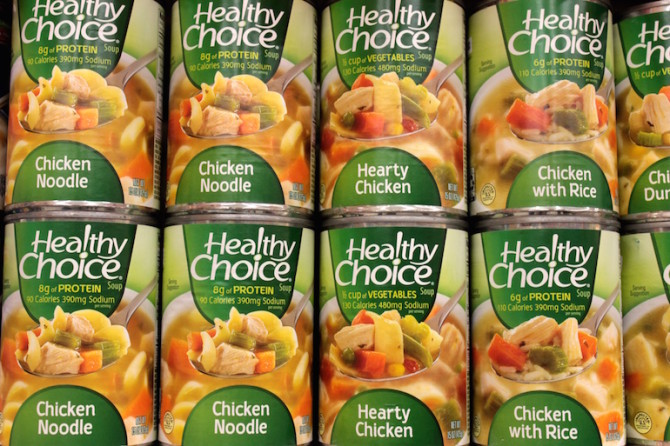


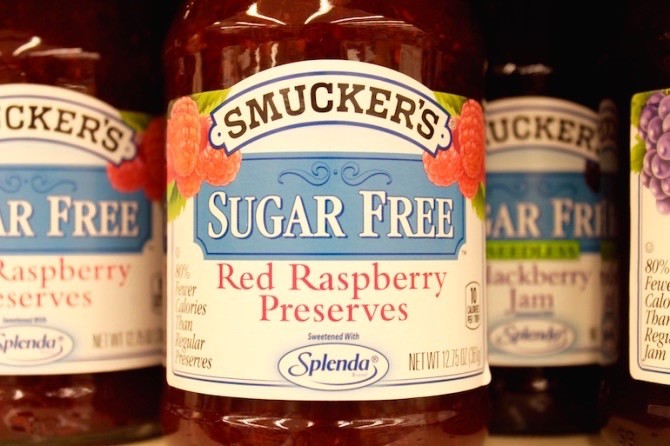



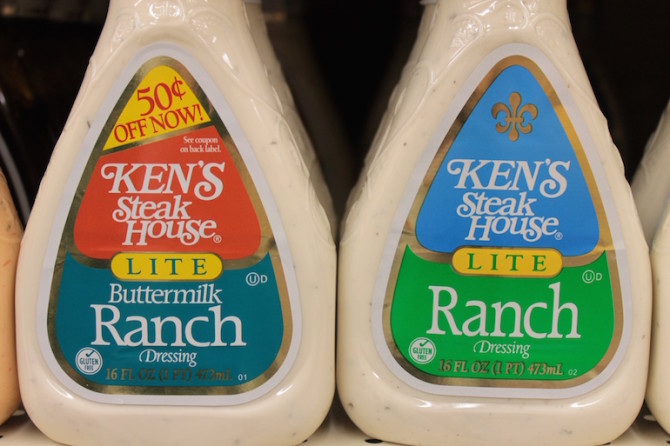

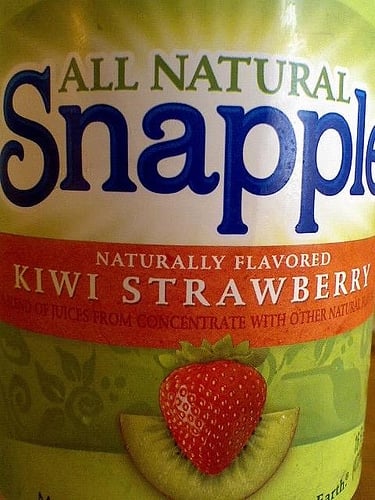


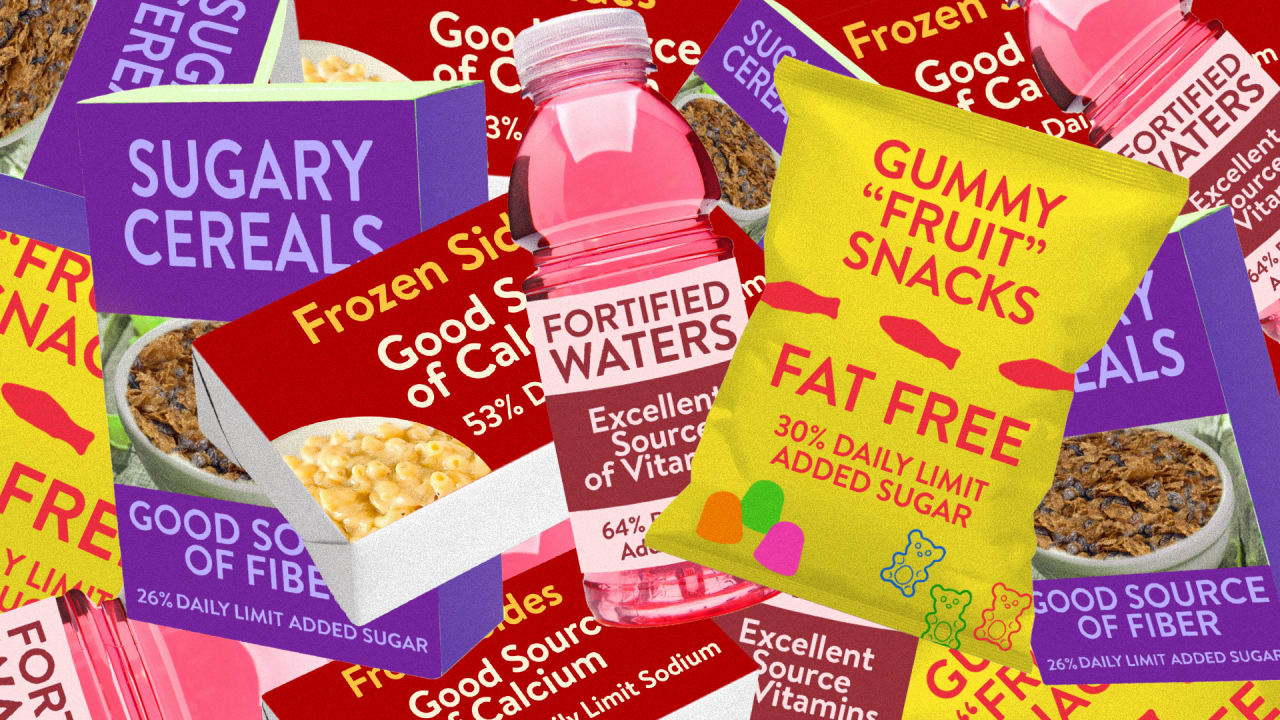
Post a Comment for "45 can food labels be misleading"